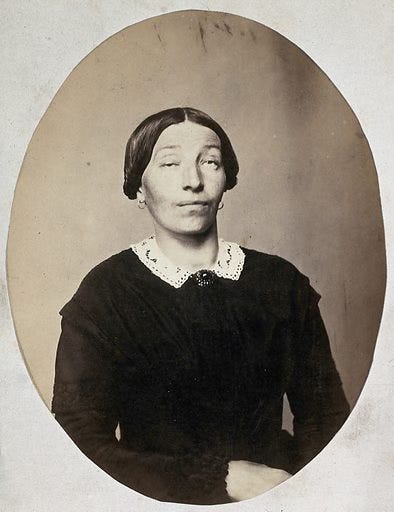NYC EPIDEMIC: People Who Won’t Shut Up
The Tragedy of Trying to Be Terminally Interesting
Since moving to New York City, on numerous occasions I’ve been subjected to what I like to call ‘monologuing’: people who trick you into what you’d hope is a social conversation, only to kill you off with an uninterrupted, self-promotional soliloquy.
It’s like walking into the Bates Motel expecting hospitality. Cause of death: desiccated from a one-way conversation. Sometimes, I glance behind me, half-expecting to see a camera crew, convinced that no one could talk this long without Drew Barrymore nodding sympathetically in the background.
This has me thinking about Marie-Louise von Franz, who once said in an interview that modern man would struggle because, given that Earth is overpopulated, we’re all essentially superfluous. You could eliminate any one person and, on a purely pragmatic level, the world would be no worse for it. People compensate for this feeling by either becoming depressed or overly ambitious (or, if you’re like me, both).
Thanks to the internet, all of us have, more or less, the same range of skills, talents, and things to offer. One way we can still stand out is through storytelling:
Insert: The Cover Letter Generation!
We’re all pitching, all the time. Job applications, dating apps, social media bios—our entire existence revolves around how well we can sell ourselves. Are you even important if you don’t have a personal brand?
So, what happens when the need to be special meets a lack of actual distinction? Well, we manufacture it, of course! Through social media, anyone can dramatize their experiences, curate hardships, and fall in love with their perceived struggles (I’m looking at you, LinkedIn).
We know a good story sells, and we’ve internalized this logic so deeply that people feel entitled to a gripping personal narrative before they’ve actually done anything. Give me the book deal before I even know what the book is about!
The problem is, you can’t have a good life story before you’ve had a life. Which brings me back to monologuing: word vomit from people who seem desperate to have their uniqueness mirrored back to them.
If necessity is the mother of invention, what are we inventing when our biggest need is simply to be noticed? What are we creating if we only care about having eyes (or ears) on us? What happens when fewer people are willing to tolerate being a peripheral character, and everyone demands to be center stage?
Maybe genius lives in the shadows. Becoming a person of consequence doesn’t happen just because you want it to—it happens by treading fine lines, observing from the margins, and seeing things in unusual, unique ways.
Toni Morrison, in an interview where she was challenged for not centering on white characters in her novels, said: “I stood at the border, stood at the edge and claimed it as central. I claimed it as central, and let the rest of the world move over to where I was.”
Though her words speak directly to racial dynamics and power structures, they also carry a broader wisdom: that real originality, real presence, doesn’t come from chasing the center—it comes from defining your own. It’s a reminder to stay rooted in our own narrative and let the world respond to that, not the other way around.
Maybe in a world obsessed with being seen, the real rebellion is looking outward.
So my question to you: Can you stomach being peripheral?
You might be surprised at what happens when you do.



